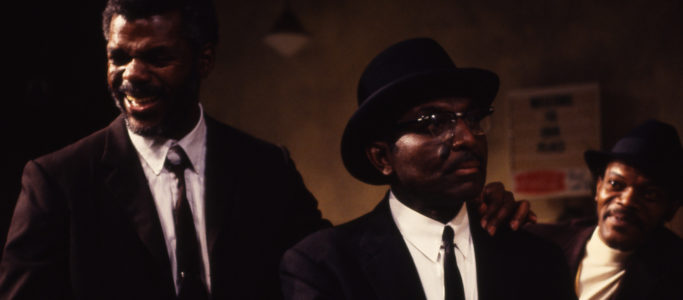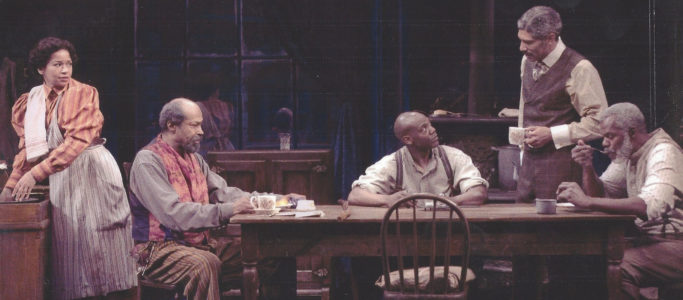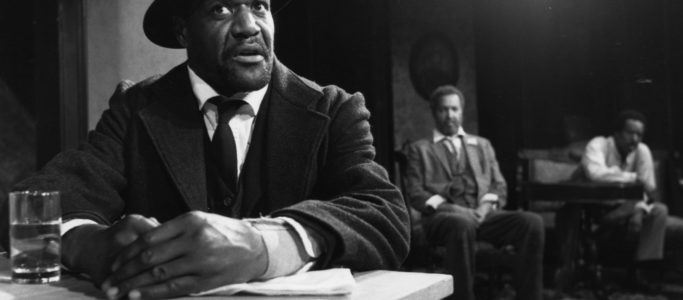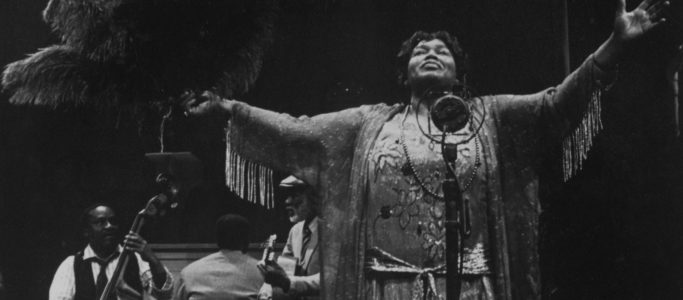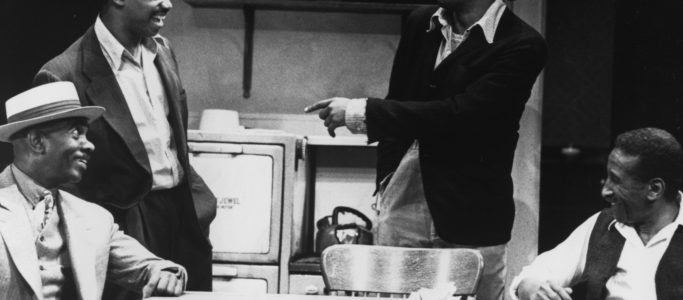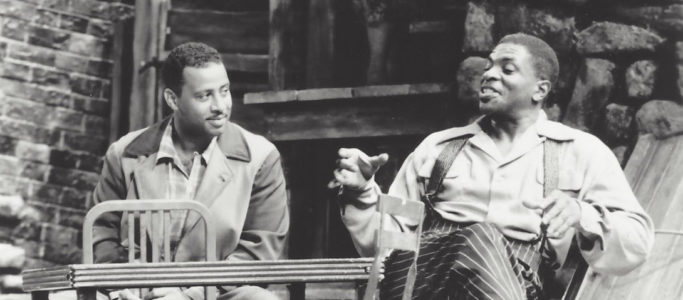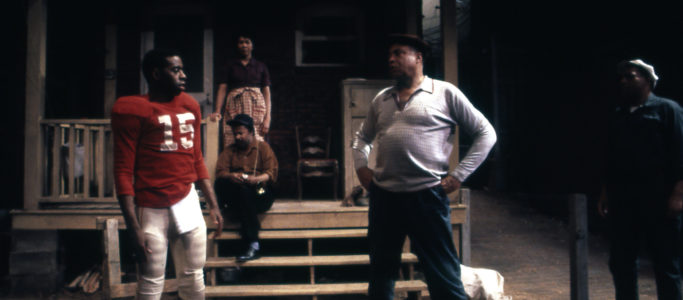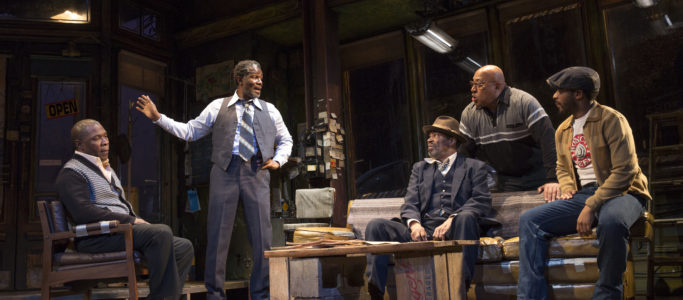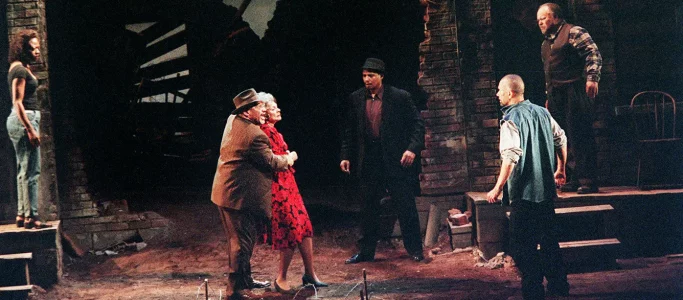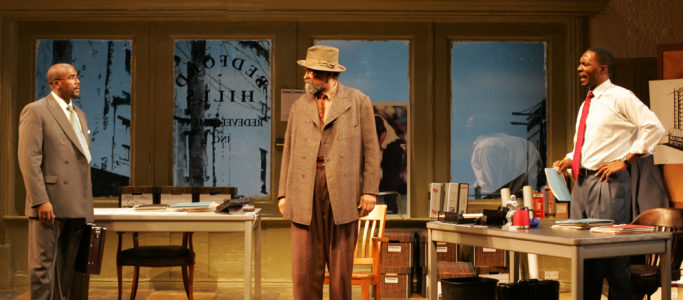Two Trains Running
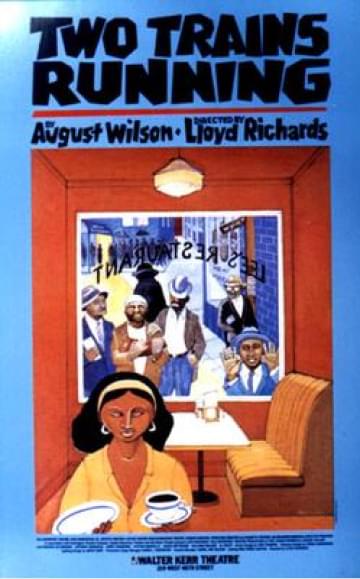
- Broadway Debut
-
April 13, 1992
Kerr Theatre
- Performances
- 160
Set in 1969, Two Trains Running is about racial tensions in the Civil Rights era, as argued over by regulars at a soon-to-be-demolished diner, including a waitress, an ex-convict and a 322-year-old sage.
In a decade that held so much promise, the Civil Rights movement does not hold center stage in Wilson’s play, but rather simply a cameo: a rights rally offstage, a short exchange about Malcolm X. Two Trains Running almost solely revolves around one subject: money. The weekly numbers game, the price that Memphis can acquire for his building as the neighborhood gentrifies, and West’s financial success are all topics of conversation. This juxtaposition between the lofty ideals of the sixties and the reality of Black hardship demonstrates Wilson’s genius. His characters anxiously grapple with value: of money, of culture, of rights, of freedom. In Memphis’ own words: “Freedom is heavy. You got to put your shoulder to freedom. Put your shoulder to it and hope your back hold up. And if you around here looking for justice, you got a long wait.
In His Own Words
“He got six kids of his own, not to mention me. He got a raggedy house with some beat-up furniture. Can’t buy no house ‘cause he can’t get a loan. Now that sound like a hardworking man. Good. Clean. Honest. Upright. He work thirty years at the mill and ain’t even got a union card. You got to work six months straight. They lay him off for two weeks every five and a half months”Sterling, Act 2, Scene 4

August Wilson:
A Writers Landscape
The August Wilson African American Cultural Center, one of the largest cultural organizations in the country focused exclusively on the African American experience and the arts of the African diaspora, will create The Writer’s Landscape, the first-ever exhibition dedicated to the life and works of Pulitzer Prize-winning playwright August Wilson. Opening in late 2020, the 1,800 square foot permanent exhibition will explore the people and places of Pittsburgh, where Wilson was born and raised, and which had a profound impact on shaping his worldview and inspiring his unprecedented 10-play American Century Cycle.
Explore Exhibit
